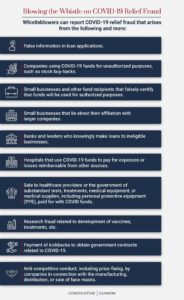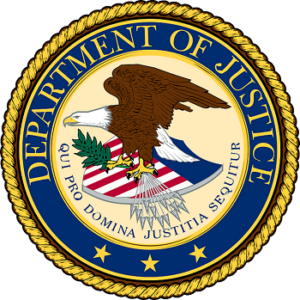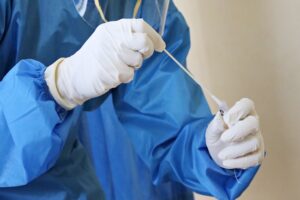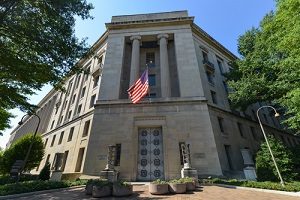COVID-19 Fraud
What potential whistleblowers need to know about reporting fraud related to the Coronavirus (COVID-19) pandemic
COVID-19 Fraud & the Role of Whistleblowers
The government is rolling out massive spending programs and regulatory changes to fight the COVID-19 pandemic and ease its economic fallout. Meanwhile, businesses of all kinds are adjusting to sudden new economic realities.

With this historical government spending, and the material changes in the regulatory and economic environment, fraud will inevitably find a foothold. Such fraud makes it harder to fight COVID-19, delays an effective response, and wastes taxpayer dollars.
Whistleblowers serve as a crucial line of defense. The government will need to rely on whistleblowers to reveal fraud, and if you blow the whistle on someone who commits fraud in applying for COVID-19 relief funds, spending those funds, or otherwise, you may be eligible for a reward under the False Claims Act or other whistleblower reward programs.
The whistleblower attorneys of Constantine Cannon are ready to assist whistleblowers in the United States and abroad who have knowledge of fraud related to the COVID-19 pandemic.
COVID-19 Fraud Topics Covered Here:
Fraud in Government Spending and Government Programs
The government’s financial response to the COVID-19 crisis is unprecedented. These funds are intended to support individuals and businesses, test and treat patients, research and test vaccines and treatments, and rescue our economic system. The sheer scale of the response means the government might lack resources for robust oversight.
By helping to protect and maintain the integrity and transparency of government programs, whistleblowers can help ensure that these funds go to those who deserve them, not to those who scam the programs. Where there is fraud in government contracting, government healthcare spending, or other government programs, whistleblowers under the False Claims Act may be eligible for an award of up to 30% of any recovery by the government.
The initial Coronavirus Aid, Relief, and Economic Security (CARES) Act provides for $2 trillion in federal government spending. Subsequent enactments, including the Families First Coronavirus Response Act and the $2 trillion American Rescue Plan Act of 2021, continue to increase federal financial commitments. Among the major spending programs introduced to combat and respond to COVID-19:
- The Paycheck Protection Program (“PPP”) provides loans to small businesses who state that they will keep employees on the payroll rather than laying them off; loan repayment is initially deferred and can be entirely forgiven. The PPP is administered by private banks, who can charge the government fees on the loans.
- The Treasury Department Economic Stabilization Fund (“ESF”) authorizes hundreds of billions in loans, guarantees and “other investments” to businesses including those in national security and aviation, as well as to state and local governments. Loan applicants must meet specific criteria, and adhere to specified business standards for a relevant time period.
- Hundreds of millions are authorized for SBA Economic Injury Disaster Loans (“EIDL”) and Emergency Grants to provide working capital to small businesses.
- Over $100 billion for vaccine distribution, COVID-19 testing, and other coronavirus public health measures.
- Over $100 billion in additional funding for personal protective equipment for healthcare workers and other COVID-19 prevention, diagnosis, and treatment expenses, directed to hospitals, community health centers, Department of Defense health programs including TRICARE, the Indian Health Services, and the VA.
- $24 billion in aid to agricultural producers negatively affected by COVID-19.
- Billions in funds to support educational programs, including the Higher Education Emergency Relief Fund for colleges and universities and the Elementary and Secondary School Emergency Relief Fund, which allocates funds for states to award in subgrants.
- Billions to the Department of Defense, including for Defense Production Act (“DPA”) purchases by DOD to increase supplies of medical and protective equipment.
Where fraud targets government dollars, whistleblowers can bring claims under the False Claims Act, which provides financial rewards to successful whistleblowers.
Fraud related to these COVID-19 relief programs may arise from:
- False information in loan applications;
- Companies using COVID-19 funds for unauthorized purposes, such as stock buy-backs;
- Small businesses and other fund recipients that falsely certify that funds will be used for authorized purposes;
- Small businesses that lie about their affiliation with larger companies;
- Banks and lenders who knowingly make loans to ineligible businesses;
- Hospitals that use COVID-19 funds to pay for expenses or losses reimbursable from other sources;
- Sale to healthcare providers or the government of substandard tests, treatments, medical equipment, or medical supplies, including personal protective equipment (PPE), paid for with COVID funds;
- Research fraud related to development of vaccines, treatments, etc.;
- Payment of kickbacks to obtain government contracts related to COVID-19;
- Anti-competitive conduct, including price-fixing, by companies in connection with the manufacturing, distribution, or sale of face masks.
Medicare Fraud that Targets Regulatory Changes in Response to COVID-19
HHS and state Medicaid agencies have issued temporary policies to alleviate the financial pressure on hospitals and other health care providers during the COVID-19 crisis. These steps are important, and necessary, to curtail the spread of the virus and to facilitate the treatment of infected patients. However, they may also open the door to new Medicare, Medicaid, and other healthcare fraud schemes by unscrupulous individuals and businesses.
Given the current crisis, the changes were implemented quickly. Many of these policy changes were implemented as “Section 1135 Waivers,” referencing a provision of the Social Security Act that authorizes HHS to waive or modify statutory or regulatory requirements in emergencies. The CARES Act has codified some of these waivers, and requires additional regulatory changes. It will be important to monitor fraud that may arise from these changes.
The Medicare policy changes are aimed at boosting reimbursement by, among other things, promising a 20% Medicare add-on payment to hospitals for treating COVID-19 patients, revising the Medicare accelerated payment program to ensure hospitals receive payments more quickly, and cancelling the annual 2% cut in Medicare payments to hospitals, physicians, and other providers. Other changes include providing flexibility in the administration of health care.
Where fraud targets this government healthcare spending at either the federal or state level, whistleblowers may be able to bring a case under the federal False Claims Act or a state False Claims Act and be eligible to receive a share of the government’s recovery as a financial reward.
Fraud schemes targeting public healthcare programs and COVID-19 include:
- False billing involving telehealth
- False billing for medically unnecessary COVID-19 treatments,
- False billing for medically unnecessary COVID-19 diagnostic testing.
- False billing by providers out of business due to COVID-19.
- Theft of beneficiary IDs to bill for diagnostic tests and services.
- Marketing drugs or devices for unapproved uses related to COVID-19.
Financial and Investment Fraud
The financial disruptions of the COVID-19 crisis have imposed significant pressures on companies, financial markets, and financial institutions. The SEC, CFTC, and other regulators, have made clear that they are on the lookout for financial and investment fraud that will result from the crises.
- Financial reporting and disclosures. The SEC has made clear that while the effect of the COVID-19 crisis is hard to predict, a company’s response to the crisis is material, and companies are advised to consider COVID-19 related disclosures including risks, impact on financial condition and results of operations, capital and financial resources, and other issues. At the same time, the SEC has recognized that COVID-19 may present novel and complex accounting and valuation issues, and make the work necessary to resolve those issues more difficult to perform.
- Insider trading. The SEC has also warned company insiders to refrain from trading in a company’s securities prior to the release of material non-public information, and to take steps to avoid selective disclosures. Given the market volatility and potential impact of disclosures, insider trading presents a substantial risk.
- Fraudulent investment schemes. The CFTC has warned that fraudsters may seek to prey on those seeking security in our unstable market. “Fraudsters,” the CFTC writes, “commonly use major news events, such as the spread of COVID-19, to add credibility to their cons or manipulate emotions.” Similarly, the SEC has formed a “COVID-19 Market Monitoring Group” which will, among other tasks, monitor the impact of COVID-19 on investors.
Where companies engage in such fraudulent or improper conduct, whistleblowers may be able to bring a claim under the SEC or CFTC whistleblower reward programs.
In addition to these impacts on the financial markets, federal statues and regulations have been enacted and amended, purportedly in order to ensure capital markets liquidity. For example, a number of regulatory requirements on banks have been eased, and significant leeway granted, including with respect to debt restructurings made in good faith in response to COVID-19. As many banks are publicly traded, they must be sure to accurately report asset valuations and risks.
In the housing and mortgage market, the government has acted to provide additional liquidity, and has authorized “flexibility” with respect to some appraisal and income verification requirements. With FHA insurance, noncompliant lending can expose the federal government and taxpayers to additional risk, potentially giving rise to liability under the False Claims Act.
In addition, the CARES Act made a number of amendments to the Internal Revenue Code, including amendments that provide corporate tax credits for employee retention, relaxed requirements for the use of net operating losses from prior years, expanded corporate AMT credits, and accelerated depreciation. Tax fraud and underreporting can be reported by whistleblowers under the IRS whistleblower reward program.
Other Fraud Schemes Arising from the COVID-19 Pandemic
With so much at stake, fraudsters and other bad actors are busy: new COVID-19 fraud schemes will surely arise. To read our latest articles about COVID-19 fraud, as well as our previous reporting, please see below.
The federal government has announced a commitment to rooting out fraud related to COVID-19, including the launching of a Coordinated Nationwide Response to Detect, Deter, and Punish Crime Relating to the National Emergency Caused by COVID-19, published guidance regarding COVID-19 fraud, and the implementation of a task force to address hoarding and price gouging.
Blow the Whistle on COVID-19 Fraud
With schemes so varied, and their details so often buried, whistleblowers will be essential to government enforcement efforts. If you would like more information, or would like to speak to a member of the Constantine Cannon’s whistleblower lawyer team, please Contact us for a Confidential Consultation.





